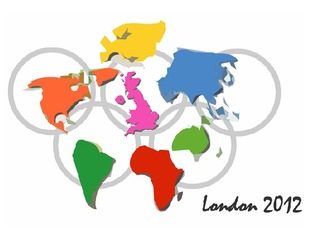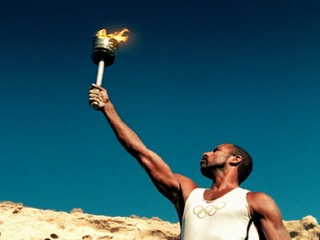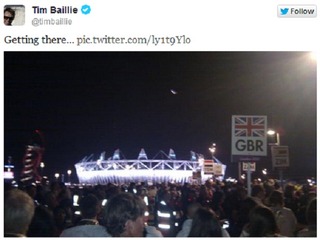Maven Clinic launches program for members who want to get pregnant without IVF
The company also expanded access to 12 different provider types for male fertility care
Read more...
Olympic committee organizers and fans are blaming the extreme tweeting and data use for some interruptions in Olympics coverage, especially during the men's cycling this weekend.
Because of the thousands of people attending each event, the number of data users in confounded areas can overload the cellular networks when tweeting, app usage and other online activity is occurring and reports for Reuters claim that this network overload impacted BBC event coverage curing a cycling event.
TV commentators were unable to give their audience live, correct placement of cyclists during the race or their finishing times since spotters and TV production teams weren't able to communicate easily during the event and broadcast.
“From my understanding, One network was oversubscribed, and OBS (Olympic Broadcasting Services) are trying to spread the load to other providers,” IOC Communications Director Mark Adams told The Guardian. “We don’t want to stop people engaging in this by social media but perhaps they might consider only sending urgent updates.”
That request is entirely unlikely to get traction from the most socially collaborating and sharing event attendees ever.
The opening ceremony, which Nielsen said drew 40 million people generated more than 9.66 million tweets, Twitter UK announced.
Tweets were measured from the beginning of the ceremony at 8pm in London to the end of the tape delayed broadcast in the United States.
Those roughly 10 million tweets already outpaced all of the tweets posted during the 2008 Games in Beijing combined.
And one of the opening ceremony actors and the World Wide Web creator Tim Berners-Lee had his message retweeted 10 million times. Wow! This is a lot of social media coverage, communication and raw power.
This Internet collective is one that telecoms companies thought they had a handle on, since they boosted their number of towers, power and infrastructure, but that boost may only have been enough for the Olympics park itself and not London-proper, where many games are spread about the city.
The last summer Olympics, in Beijing, was held in 2008, just one year after the debut of the very first iPhone and less that 8% of people owned a mobile device that connected to the Internet. Now, more than 18% of people have a smartphone and these phones sometime consume more data than your average laptop.
To prepare for the mobile demand of 2G and 3G connection around Olympic Park, the city and organizers have installed 30 mobile phone masts across the 2,000 square meter site to help reduce issues that could occur inside the Park.
Stuart Newstead, chair of the the body representing U.K. mobile operators and content providers, told the BBC:
At peak time when one set of spectators leaves and another arrives you will have between 200,000 to 300,000 people on site. It's as well prepared as it can be. The key to the planning has been co-operation between the operators to maximize the laws of physics, allowing a far denser configuration of masts and antennas than normal to ensure as much capacity as possible.
It's very likely that since this network interruption has already happened, that it could happen again and producers of the Games should not be relying solely on data sent via cellular network signals, such as the GPS systems on riders bikes.
Paracycling world champion Colin Lynch said cycling "usually has much better coverage and commentary" and urged newcomers: "Don't be put off."
Viewers may critisize, but they certainly are still watching.
(Image Source: The Sun)
The company also expanded access to 12 different provider types for male fertility care
Read more...Ezra's AI cancer screening platform will be available in 150 RAYUS locations
Read more...Foggy uses the Taptic Engine in Apple Watch to provide vibrotactile stimulation for gait freezing
Read more...


